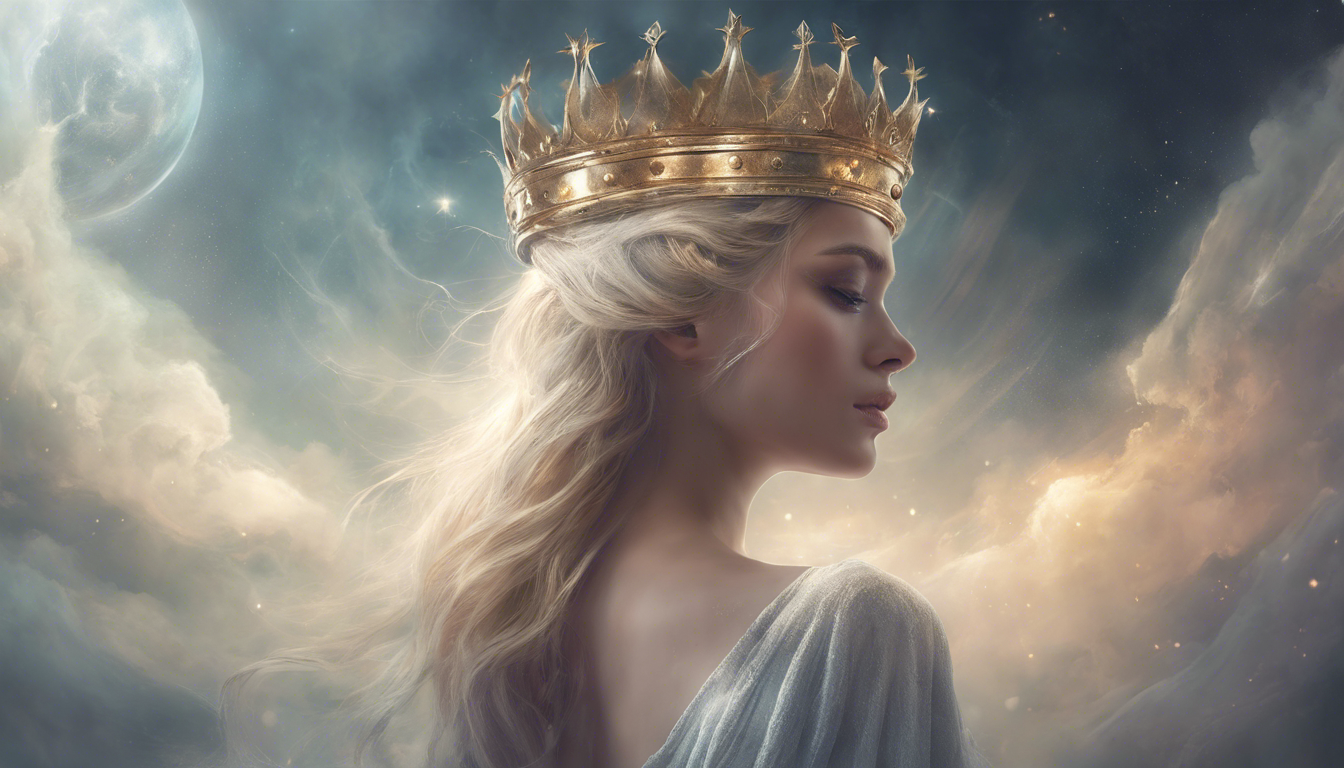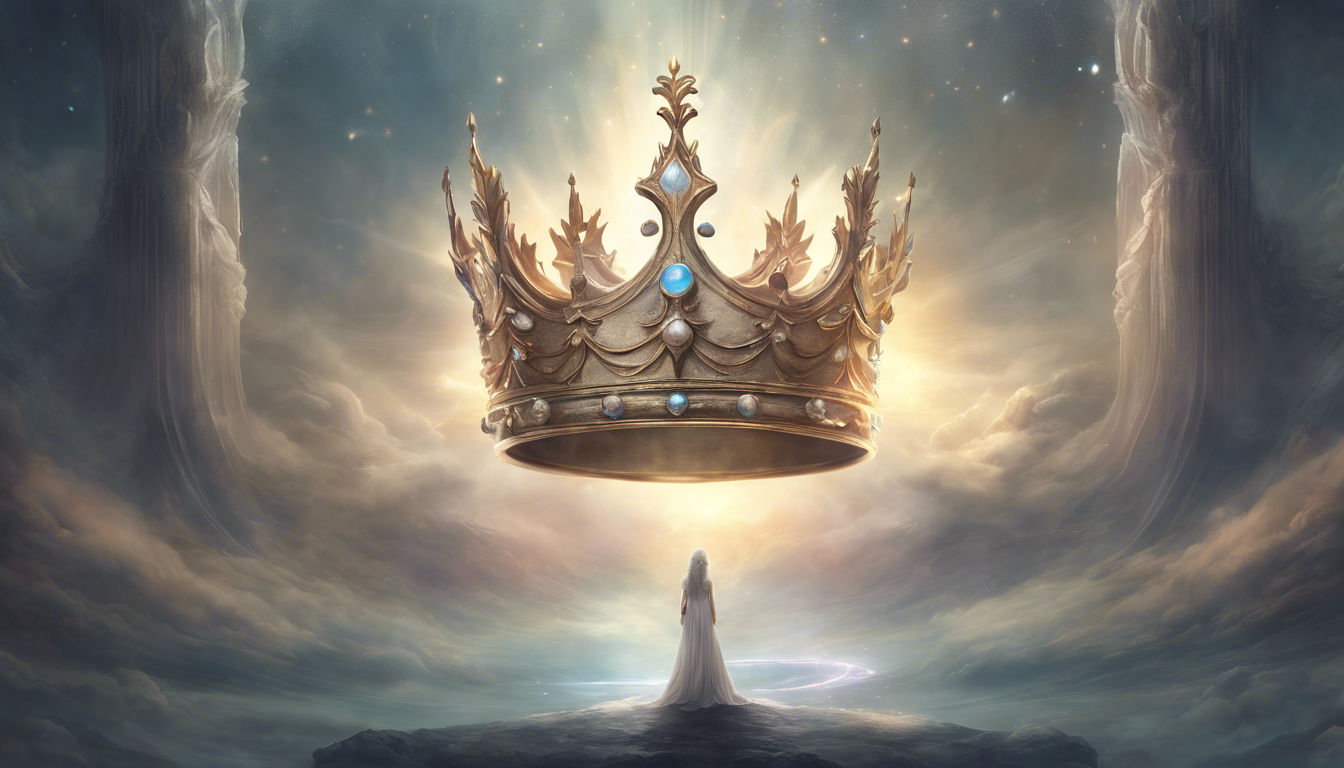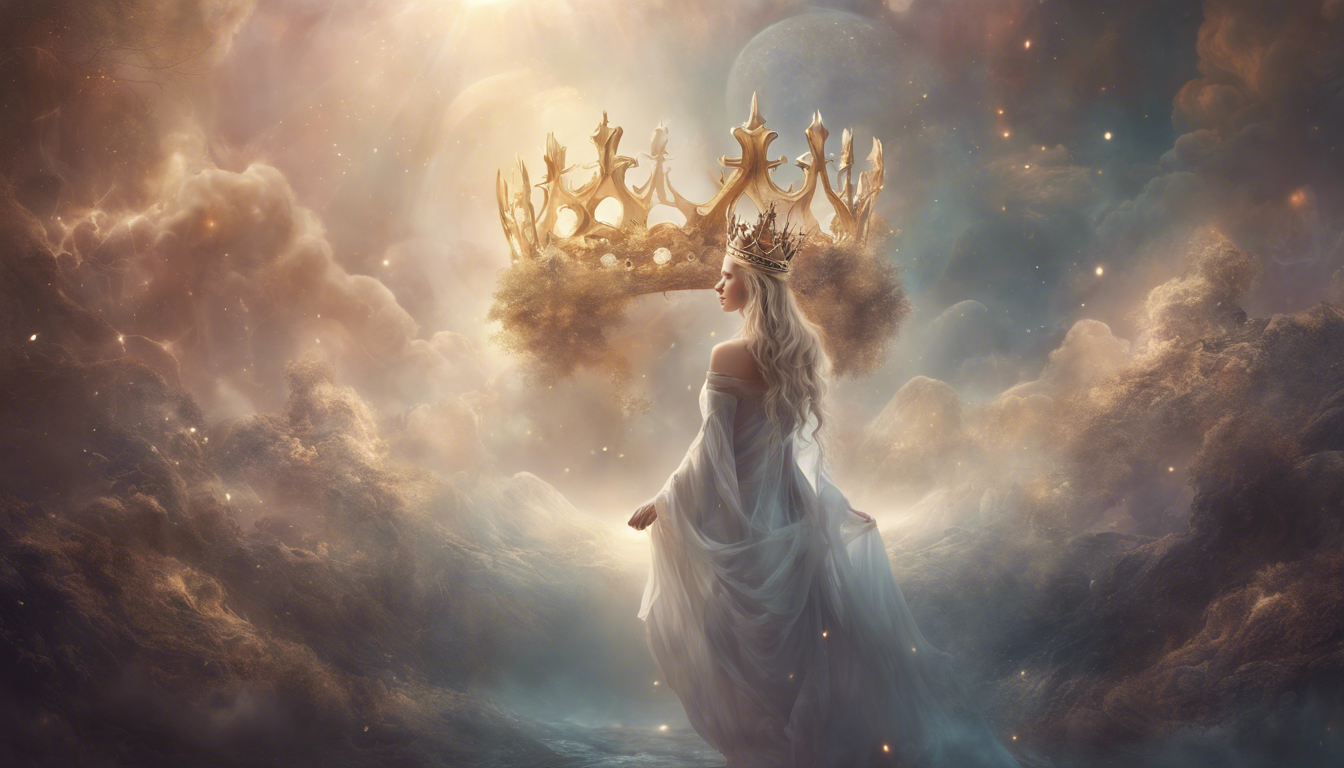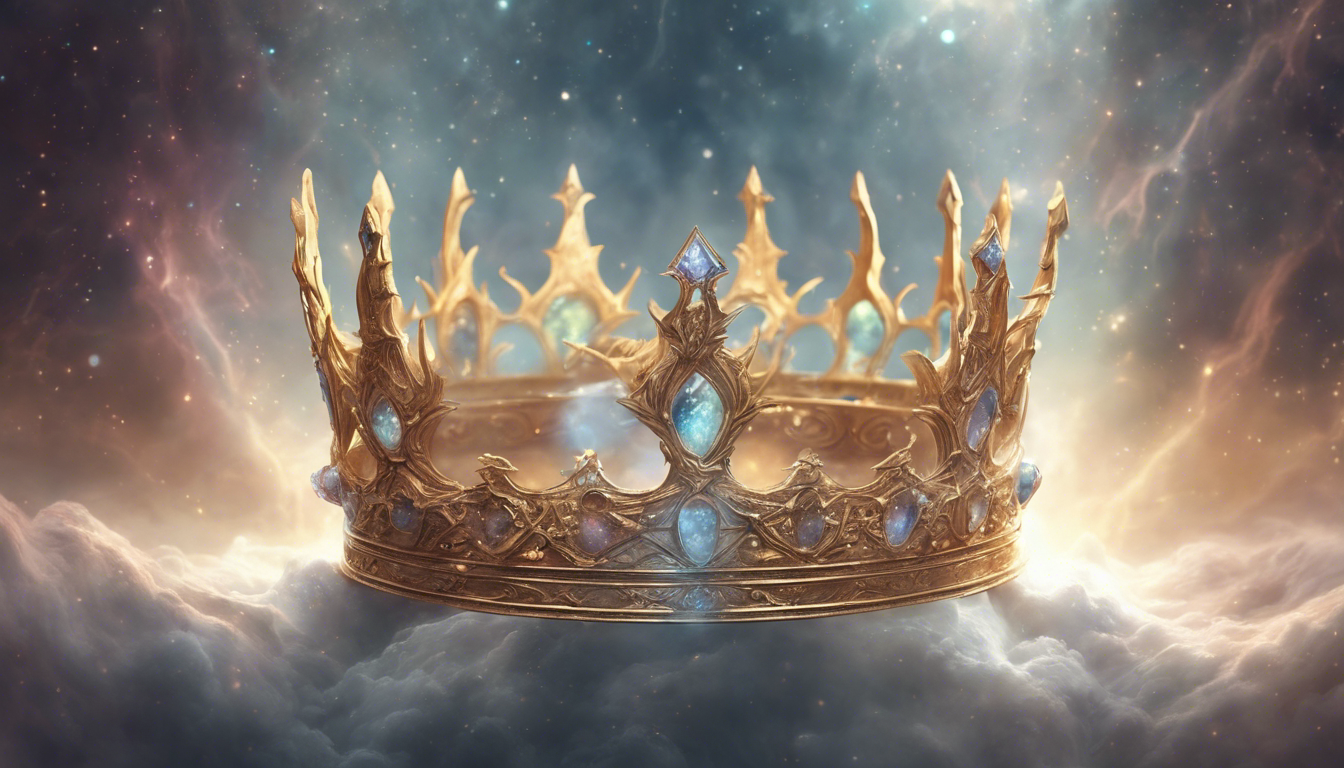The Historical Significance of Crowns
The Power and Prestige of Crowns
Crowns have long been symbols of power, authority, and royalty throughout history. From ancient civilizations to modern monarchies, crowns have held a significant place in various cultures worldwide. They are not merely decorative headpieces but carry a deep symbolism that represents leadership and dominance.
Divine Connection: Crowns in Religion and Spirituality
In many religious traditions, crowns are associated with divinity and the connection to higher realms. In Christianity, crowns symbolize the glory and reward awaiting the faithful in the afterlife. Crown of Thorns is a powerful Christian symbol representing the suffering of Christ.
Historical and Cultural Significance
The historical significance of crowns can be seen in the context of different cultures and periods. In ancient Egypt, pharaohs wore the double crown, symbolizing the unification of Upper and Lower Egypt. In medieval Europe, crowns were a visible sign of the monarch’s authority and were often adorned with precious gems and metals.
The Evolution of Crowns in Modern Times
As societies evolved, so did the symbolism of crowns. While monarchies still exist, the significance of crowns has shifted from absolute power to ceremonial and symbolic roles. Today, crowns are often seen in pageants, weddings, and other formal events, representing tradition and heritage.
The Legacy of Crowns in Art and Literature
Crowns have not only played a role in history but have also inspired artists and writers. In art, crowns are often depicted as symbols of authority and status. In literature, they represent themes of leadership, legacy, and the burden of power. The crown jewels of various monarchies are not only valuable artifacts but also cultural symbols.
Symbolism and Representation in Crowns

When it comes to crowns, these regal accessories hold significant symbolism and play a crucial role in representing power, authority, and status. Throughout history, crowns have been adorned by monarchs, leaders, and deities to symbolize their rule and importance.
The Crown as a Symbol of Authority
Crowns are often used to represent authority and sovereignty. They are worn by monarchs during coronation ceremonies, signifying their right to rule. The intricate design and jewels adorning a crown often reflect the wealth and power of the wearer, making it a potent symbol of leadership.
Historical Significance of Crowns
The history of crowns dates back to ancient civilizations, where rulers wore elaborate headpieces to distinguish themselves from the rest of society. In Egypt, pharaohs wore the iconic “Nemes” headcloth with a cobra symbol, while in Europe, crowns became associated with divine right and legitimacy to rule.
Cultural Diversity in Crown Symbolism
Crowns hold diverse symbolism across different cultures. In some societies, crowns are seen as a connection to the divine, while in others, they represent the unity of the ruling class. The design, materials, and adornments of crowns vary worldwide, reflecting unique cultural values and traditions.
The Modern Interpretation of Crowns
In contemporary society, crowns are not only worn by royalty but have also become fashion statements and symbols of achievement. Beauty pageants, music royalty, and even social media influencers adopt crown motifs to convey a sense of power and glamour.
In conclusion, crowns serve as more than just decorative headpieces; they are loaded with symbolism, cultural significance, and historical connotations that continue to shape our perceptions of power and authority.
Cultural and Religious Implications of Crowns

The symbolism of crowns holds a significant place in various cultures and religions, portraying power, authority, and divinity. Throughout history, crowns have been revered as symbols of royal status, leadership, and spiritual significance. Let’s delve into the cultural and religious implications of crowns to understand their profound meanings across different societies.
Cultural Significance of Crowns
In many cultures, crowns are intricately designed and adorned with precious metals and gemstones to symbolize wealth, status, and importance. They are often worn during ceremonial events such as coronations, weddings, and religious rituals to signify the high rank and dignity of the wearer. Crowns in cultural contexts serve as visual representations of societal hierarchy and the divine right to rule.
Historically, crowns were associated with monarchs and rulers, signifying their authority and legitimacy. The intricate designs and embellishments on crowns were reflective of a culture’s artistic traditions and craftsmanship, making them not only symbols of power but also of cultural identity. Crowns in cultural settings are crafted with meticulous attention to detail, representing a fusion of art, history, and tradition.
Religious Symbolism of Crowns
In religious contexts, crowns hold deeper symbolic meanings, representing spiritual authority, enlightenment, and divine connection. In Christianity, crowns are associated with martyrs, saints, and the crown of thorns worn by Jesus Christ during the crucifixion. The crown of thorns symbolizes sacrifice, redemption, and the ultimate triumph over suffering, serving as a powerful religious emblem of faith and salvation.
Across various faiths and beliefs, crowns are often linked to the concept of enlightenment and spiritual awakening. They represent the attainment of higher consciousness, inner wisdom, and divine grace. In some religious traditions, crowns are revered as sacred objects used in rituals and ceremonies to bestow blessings and protection upon the wearer, symbolizing a connection to the divine realms.
In conclusion, the cultural and religious implications of crowns are multifaceted, encompassing themes of power, authority, spirituality, and tradition. Whether worn by royalty or used in religious ceremonies, crowns continue to captivate us with their symbolic significance and timeless allure, transcending borders and beliefs to evoke a sense of majesty and reverence.
Modern Interpretations of Crown Symbolism

Evolution of Crown Symbolism
In modern times, the symbolism of the crown has evolved beyond its traditional associations with power, authority, and monarchy. While historically, crowns were worn by rulers as a physical representation of their sovereignty, today, this symbol has taken on new meanings in various contexts.
Representation of Individual Sovereignty
One modern interpretation of the crown symbol is its representation of individual sovereignty and personal empowerment. In a cultural context where self-empowerment and self-expression are highly valued, the crown has become a symbol of one’s inner strength, wisdom, and authority over one’s own life choices.
Empowerment is at the core of this interpretation, highlighting the idea that each individual has the power to rule over their own destiny and cultivate their unique talents and abilities.
Symbol of Achievement and Success
Another contemporary understanding of the crown symbol is its association with achievement and success. In today’s competitive society, the crown is often used to symbolize reaching the pinnacle of one’s goals, whether in a professional, personal, or creative endeavor.
Wearing a metaphorical crown can serve as a reminder of accomplishments and hard work, inspiring individuals to strive for excellence and set high standards for themselves.
Embracing Inner Royalty
A modern and perhaps more spiritual interpretation of the crown symbol involves embracing one’s inner royalty. This concept emphasizes the idea that every individual possesses inherent dignity, grace, and nobility within themselves, regardless of external titles or status.
By recognizing and honoring one’s inner royalty, individuals can cultivate a sense of self-worth, confidence, and inner peace, allowing them to navigate life’s challenges with a regal poise and grace.
In conclusion, the modern interpretations of crown symbolism have transcended traditional notions of power and monarchy to encompass themes of empowerment, achievement, and inner royalty. Whether used as a reminder of one’s sovereignty, a symbol of success, or a tool for embracing inner greatness, the crown continues to hold symbolic importance in contemporary society, inspiring individuals to embrace their own unique forms of kingship and queenship.


Article written by Dera
Greetings, I am Dera, a 35-year-old individual with a deep passion for spirituality. Through my website, I aim to share my insights and knowledge to help others on their spiritual journey. Join me on the path to inner peace and enlightenment.